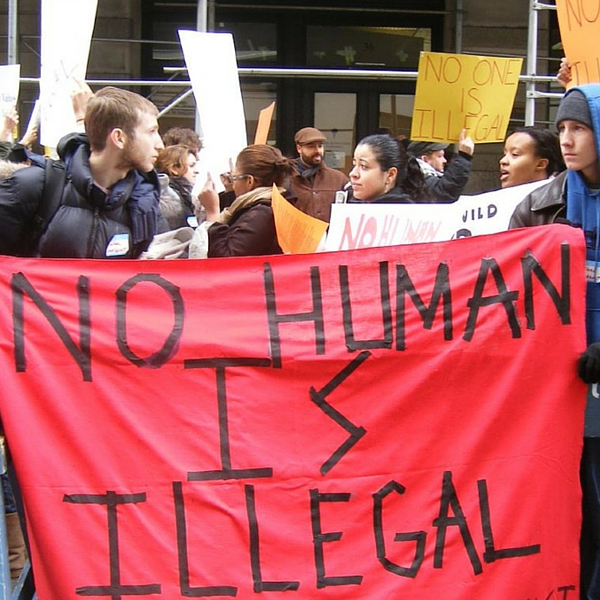Understanding and Responding to the Illegal Migration Bill
21 June 2023
The Illegal Immigration Bill looks likely to be passed, with devastating ramifications for the asylum system. The “aim” of the bill is ostensibly to stop people crossing into the UK via small boats. The implications of the bill, however, are far broader and will capture most people who seek asylum in the UK. The Refugee Council has roundly condemned the bill as ‘inhumane and unworkable’, and those working in the sector are aghast at the multitude of ways the government’s plan will strip basic human rights away from those who they work to help.
There is little to no evidence that this bill will act as a deterrent to unsafe crossings, and it does nothing to create safer ways for people seeking asylum to reach the UK. As a grant-maker to Springboard Youth Academy, a charity providing essential support to young newly arrived people in North-West London, I am keen to understand how the bill will affect refugees and people seeking asylum, and how I might be able to help.
What is the bill going to change
In essence, under the proposed changes, anyone who arrives irregularly into the UK will have their asylum claim deemed “inadmissible”, meaning the Home Office will not even consider someone’s claim. They will either be detained indefinitely and or removed to their own country or a “safe third country”.
‘The Anti-Refugee Bill is full of measures that punish people for seeking safety in the UK. Its contents are so extreme that it essentially ends the UK asylum system, while offering no new alternatives to ensure that refugees are protected.’ Refugee Action
The bill places a much heavier emphasis on detention, making it possible for the Secretary of State for the Home Department (SSHD) to detain more people for more time.
The Secretary of state for the home department will have the power to:
- detain a person for an unlimited period, and the minimum period will be adjusted to 28 days without opportunity for being granted bail
- detain a person even if the conditions for doing so are yet to be met or decided upon
- override the previous duty to consult the Independent Family Returns Panel, and will, instead, hold a near autocratic level of power
These changes all apply to children and pregnant women.
‘As many as 45,000 children could be locked up in the UK, after having their asylum claims deemed “inadmissible”.’ Refugee Council
Tyler Fox, Director of Springboard Youth Academy, told me in detail about the manifold ways in which it will have a catastrophic impact on children and young people, describing it as ‘a weed of a bill affecting multiple laws intended to safeguard vulnerable young people seeking protection.’
Alongside of removing or overriding legal protections, the bill dictates that the Home Office has a duty to remove and detain any person once they turn 18, based on them meeting four conditions:
- means of arrival
- date of arrival
- arrival via another country
- requiring a right to remain but not having it (this also applies to unaccompanied children)
The power to remove will apply regardless of whether the child has made a claim for protection, human rights, judicial review, or is a victim of slavery or trafficking.
What can grant-makers do?
Though the situation is still developing, there are steps people supporting frontline refugee and asylum organisations can take:
- Provide funding uplifts for currently funded frontline organisations so they can:
– arrange mental health support/ supervision for their staff (particularly those with personal experience of forced migration), who will very suddenly find themselves supporting young people with irregular status
– train up their teams to provide effective support to these young people once the Bill is passed
- Ensure organisations with specialist knowledge around supporting young people with irregular status are well funded and have capacity to both take on new clients and train other organisations on how best to support young people with this status
- Support any efforts in the sector to set up emergency accommodation for the young people who haven’t been detained or removed upon turning 18 (when their temporary leave expires)




